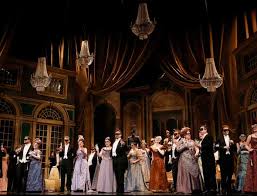Stamp: Holders of Order "For Merit" G.P.Vishnevskaya (1926-2012) (Russia 2014)
Holders of Order "For Merit" G.P.Vishnevskaya (1926-2012) (Russia 2014)
24 October (Russia ) within release Holders of Order "For Merit to the Fatherland" goes into circulation Stamp Holders of Order "For Merit" G.P.Vishnevskaya (1926-2012) face value 15 Russian ruble
| Stamp Holders of Order "For Merit" G.P.Vishnevskaya (1926-2012) in catalogues | |
|---|---|
| Michel: | Mi: RU 2101Zf |
Stamp is horizontal format.
Designer: A.MoskovecAlso in the issue Holders of Order "For Merit to the Fatherland":
- Stamp - Holders of Order "For Merit" G.P.Vishnevskaya (1926-2012) face value 15;
- Mini Sheet - Holders of Order "For Merit" G.P.Vishnevskaya (1926-2012) face value 210;
- Stamp - Holders of Order "For Merit" G.P.Vishnevskaya (1926-2012) face value 15;
Stamp Holders of Order "For Merit" G.P.Vishnevskaya (1926-2012) it reflects the thematic directions:
An actor (or actress for females) is a person who portrays a character in a performance. The actor performs "in the flesh" in the traditional medium of the theatre, or in modern mediums such as film, radio, and television. The analogous Greek term is ὑποκριτής (hupokritḗs), literally "one who answers". The actor's interpretation of their role pertains to the role played, whether based on a real person or fictional character. Interpretation occurs even when the actor is "playing themselves", as in some forms of experimental performance art, or, more commonly; to act, is to create, a character in performance.
Famous People refers to the fame and public attention accorded by the mass media to individuals or groups or, occasionally, animals, but is usually applied to the persons or groups of people (celebrity couples, families, etc.) themselves who receive such a status of fame and attention. Celebrity status is often associated with wealth (commonly referred to as fame and fortune), while fame often provides opportunities to make money.
The Medal of Honor (MOH) is the United States Armed Forces' highest military decoration and is awarded to recognize American soldiers, sailors, marines, airmen, guardians, and coast guardsmen who have distinguished themselves by acts of valor. The medal is normally awarded by the President of the United States (the commander in chief of the armed forces) and is presented "in the name of the United States Congress." It is often, not strictly correctly, referred to as the Congressional Medal of Honor
Music is an art form and cultural activity whose medium is sound organized in time. The common elements of music are pitch (which governs melody and harmony), rhythm (and its associated concepts tempo, meter, and articulation), dynamics (loudness and softness), and the sonic qualities of timbre and texture (which are sometimes termed the "color" of a musical sound). Different styles or types of music may emphasize, de-emphasize or omit some of these elements. Music is performed with a vast range of instruments and vocal techniques ranging from singing to rapping; there are solely instrumental pieces, solely vocal pieces (such as songs without instrumental accompaniment) and pieces that combine singing and instruments. The word derives from Greek μουσική (mousike; "art of the Muses"). In its most general form, the activities describing music as an art form or cultural activity include the creation of works of music (songs, tunes, symphonies, and so on), the criticism of music, the study of the history of music, and the aesthetic examination of music. Ancient Greek and Indian philosophers defined music as tones ordered horizontally as melodies and vertically as harmonies. Common sayings such as "the harmony of the spheres" and "it is music to my ears" point to the notion that music is often ordered and pleasant to listen to.
A musician is an artist who composes, conducts, or performs music. According to the United States Employment Service, "musician" is a general term used to designate a person who follows music as a profession. Musicians include songwriters, who write both music and lyrics for songs; conductors, who direct a musical performance; and performers, who perform for an audience. A music performer is generally either a singer, who provides vocals, or an instrumentalist, who plays a musical instrument. Musicians may perform on their own or as part of a group, band or orchestra. Musicians can specialize in a musical genre, though many play a variety of different styles, depending on the cultures and backgrounds involved. A musician who records and releases music can be known as a recording artist.
Opera is a form of theatre in which music is a fundamental component and dramatic roles are taken by singers. Such a "work" (the literal translation of the Italian word "opera") is typically a collaboration between a composer and a librettist and incorporates a number of the performing arts, such as acting, scenery, costume, and sometimes dance or ballet. The performance is typically given in an opera house, accompanied by an orchestra or smaller musical ensemble, which since the early 19th century has been led by a conductor. Although musical theatre is closely related to opera, the two are considered to be distinct from one another.






